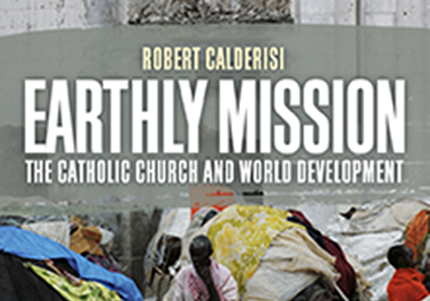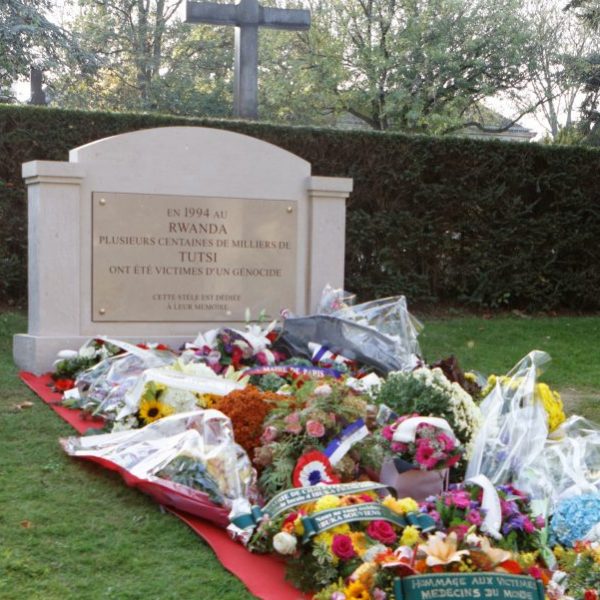Is the Catholic Church a Force for Good in the Developing World?
What role does religion play in developing countries today? Does it hinder or contribute to global health care, education, and social justice? In Earthly Mission, Robert Calderisi thoughtfully addresses these difficult questions as he examines the Catholic Church’s successes and failures in the developing world over the past 60 years. A former director at the World Bank as well as a committed but by no means uncritical Catholic, Calderisi investigates the tensions within the Church with both candidness and sensitivity.
 He opens his book with the acknowledgment that the Catholic Church is “the largest and sometimes the most controversial organization on earth.” Bringing up its name “can irritate those who regard it as one of the worst examples of religious excess, yet provoke deep loyalty among Catholics who have a pained understanding of its past.” While followers tend to view the contributions of their churches positively, many people in the West are becoming increasingly frustrated with organized religion and the damage it has caused in the developing world.
He opens his book with the acknowledgment that the Catholic Church is “the largest and sometimes the most controversial organization on earth.” Bringing up its name “can irritate those who regard it as one of the worst examples of religious excess, yet provoke deep loyalty among Catholics who have a pained understanding of its past.” While followers tend to view the contributions of their churches positively, many people in the West are becoming increasingly frustrated with organized religion and the damage it has caused in the developing world.
One of the most arresting chapters in the book centers on the Church’s complicity in the Rwandan genocide. In 1994, more than half a million Tutsis were slaughtered by the majority Hutus. This was made possible, in part, by the participation of priests, nuns, and lay Catholics. “Church leaders did little to prevent the butchery,” Calderisi soberingly points out,”and some even seemed to encourage it.” While many members of the clergy died trying to save others from the slaughter, there were also those who took part in the killing. One pastor, Athanase Seromba, allowed 2,000 Tutsis to take refuge in his church, then ordered for the building to be bulldozed. Before he was sentenced to prison for 15 years, the Vatican made statements in his defense which they have never taken back. Another priest, Gabriel Maindron, gave up his efforts to shelter Tutsis when he found out that a group that he had previously protected had since been killed. At dawn one day, a small group knocked on the door of his church seeking refuge, and he did not let them in:
At about nine in the morning, men arrived to take them a short way up the road. In his study, Gabriel closed his eyes and began reciting his rosary, hearing the clubs coming down on the skulls of those outside, the women screaming, the children dying in silence. He dropped to his knees, spread out his arms in the form of a cross, imagining Christ’s passion and his mother’s suffering. Later he wished he had died trying to save them and understood the mistake he had made.
In other chapters, however, Calderisi emphasizes the positive influence of those who stayed true to the Church’s teaching of love and charity. “Where the Church has put faith and service before self-interest,” he asserts, “it has been a shining example of what is best in humanity.” Take the two French nuns in Niger, who taught hundreds of local women how to use contraception by putting a condom on a wooden phallus. A few women pointed out that their husbands would object, so the nuns then showed them an old prostitute’s trick: slipping it on with their mouths. When questioned how they could justify this practice, the nuns maintained their admiration for the Pope while stating plainly, “If we don’t do this, a large number of them will die.” Calderisi also raises the example of the German nun running two clinics offering contraception services in Chile, who, when told by her parish priest that she was sinning, defended her decision: “I told him it was a matter of conscience and mine was as good as his, so I didn’t need his absolution. We were preventing unnecessary births, as well as AIDS and syphilis.”
The relationship between religion and development is a vexed and controversial one, but Earthly Mission‘s exploration of it is admirable for its even-handedness. And at a time when Pope Francis has been unambiguously emphasizing the Church’s duty to alleviate the plight of the poor, Calderisi‘s investigation is even more pertinent today.




